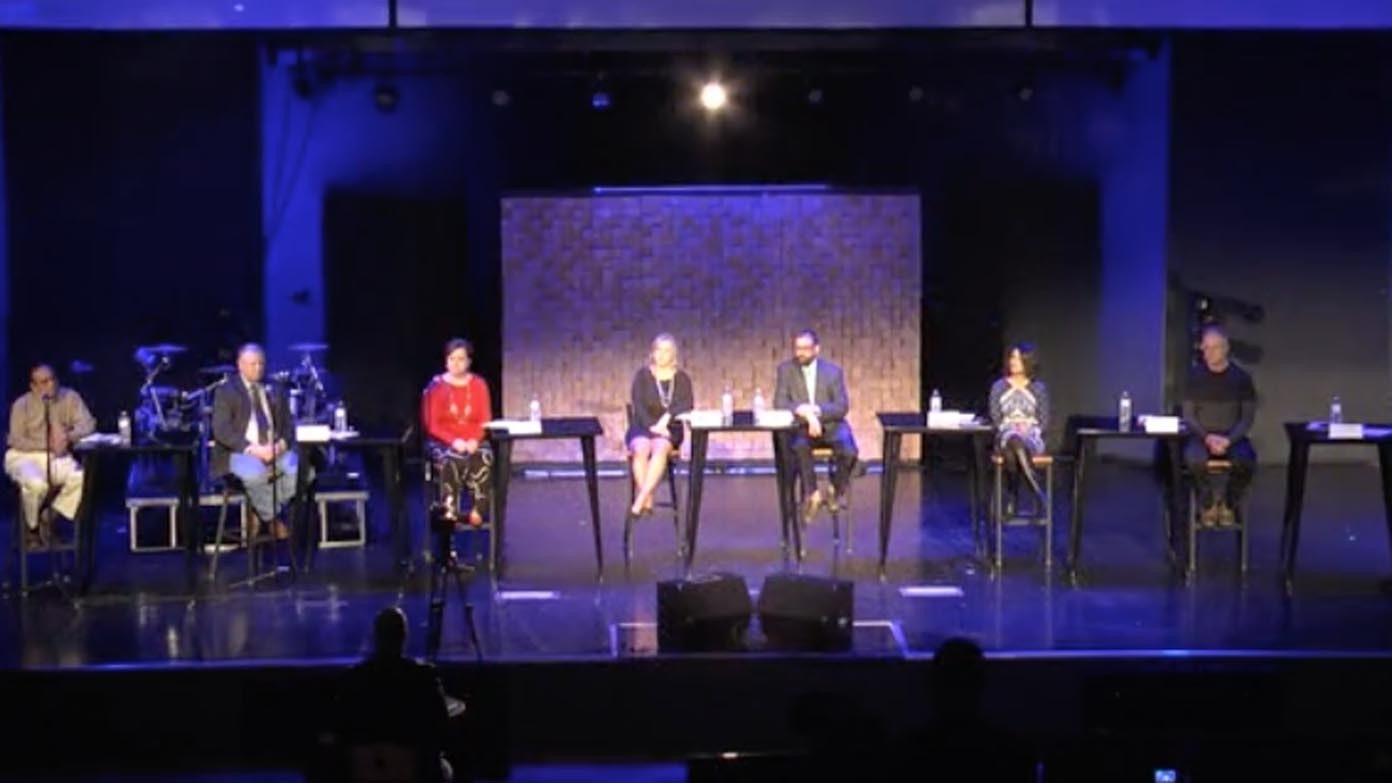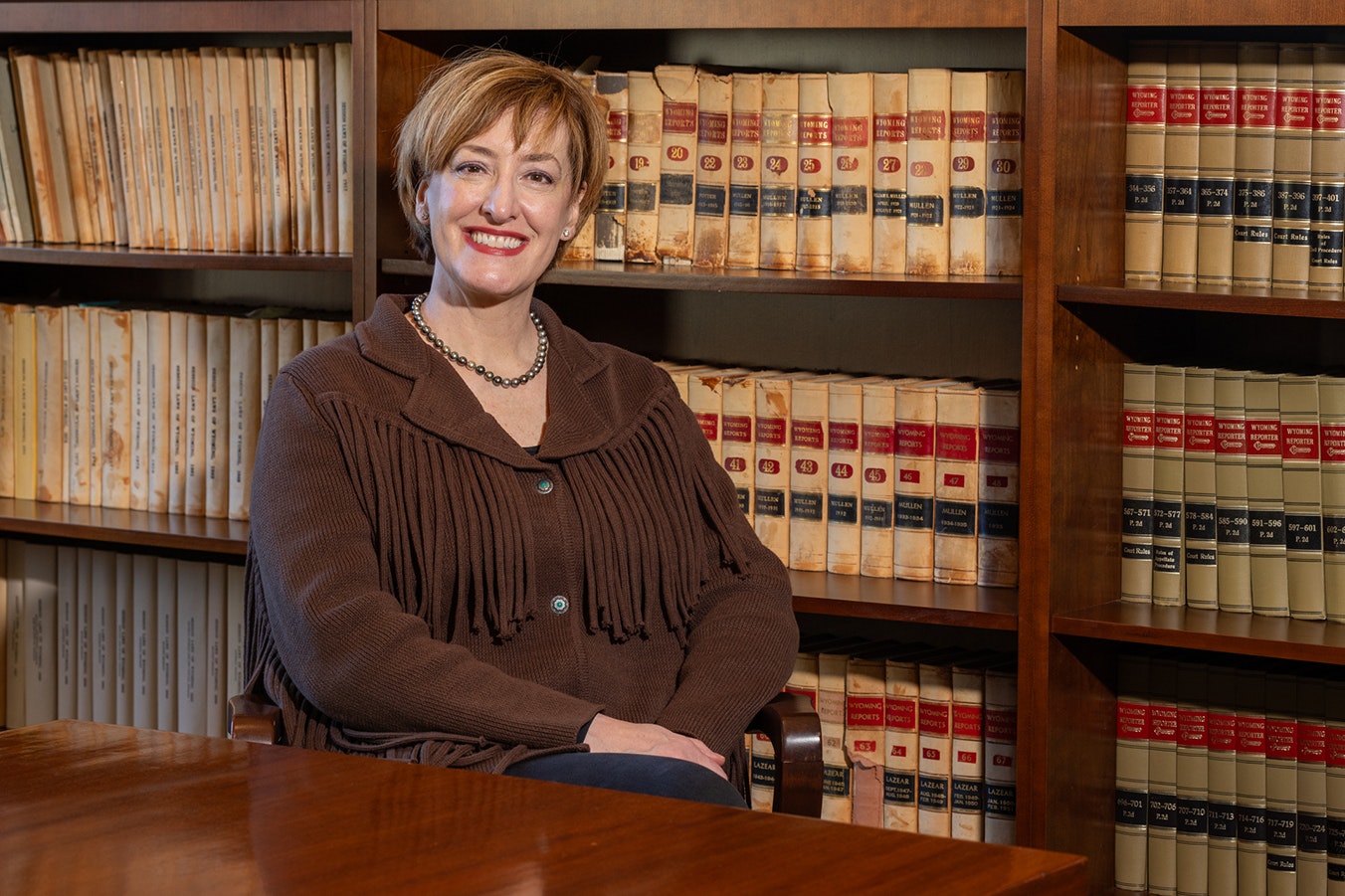Reprinted with permission from County 17
By Stephanie Scarcliff & Jen Kocher
Nearly 4,000 viewers tuned in Sunday evening to watch as a handful of local leaders in government, education, public health and the medical field addressed community-wide concerns regarding Gillette and Campbell County’s immediate and ongoing response to the COVID-19 crisis.
Amongst the topics discussed during the one-hour live-streaming broadcast at the New Life Church were the silver lining of a community and nation-wide unification, and an emphasis on placing a focus on optimism, togetherness and loving our neighbors during this challenging time.
D.G. Reardon, chairman of the Campbell County Board of Commissioners, began the discussion with opening remarks about the gravity of the novel coronavirus pandemic.
“This is a very serious situation that we need to get a handle on,” he said, stressing that the community adhere to CDC and public health guidelines and recommendations including social distancing and handwashing. He also asked that people check on their neighbors, be thoughtful, kind and patient.
As of Monday morning, 26 people in Wyoming have tested positive for COVID-19 across seven counties, including one in Campbell County. Over the weekend, four more people had tested positive as the number slowly continues to rise.
Flattening the curve
Dr. Nahida Khan, geriatrics and internal medicine at Campbell County Health (CCH), began by sharing some information about the coronavirus including its origin and epidemiology. “There’s a lot of information we’re learning every day,” she said. “It’s a learning process… but there’s still a lot that we don’t know yet.”
In addition to stressing how information is ever evolving as medical professionals observe other countries and states as well as learn more about the new strain of virus, Dr. Khan eloquently encouraged the community.
“No one likes change. It creates anxiety, fear,” she said, noting information is continuously changing right now and the public needs to be aware that information and recommendations can and will continue to develop and change. She said the best way for the community to flatten the curve is through patience and kindness and discipline.
“By the grace of God and following the recommendations, this too shall pass,” she said.
More dangerous than the flu
More than 200 people sent in questions prior to the town hall to be answered by the panel. Of these, moderator and New Life Lead Pastor Mike Wilson chose 26 to be addressed.
Several people drew comparisons to the flu and wondered why we, as a community, are taking COVID-19 so much more seriously given that roughly 60,000 people die each year from the flu compared just over 400 coronavirus deaths so far in the United States.
The two viruses are actually very different, Chief Medical Officer and Urologist at Campbell County Health Dr. Attila Barabas explained, despite the commonality of symptoms.
“That’s where the similarities end,” Barabas said. Not only is COVID-19 much more contagious, he explained, it’s also much more deadly. The facts speak for themselves, he said: Only 1% of people with the flu are hospitalized compared to 20% of those with coronavirus. Unlike the flu, there is also no treatment.
“The health sector is equipped to handle the flu,” he added, “but this is something entirely new.”
Right now, they are learning as they go, he noted, and are erring on the side of caution based on what they do know. And given its high rate of contagion, social isolating and quarantine are good tactics to employ in order to help stop the spread.
Do we have enough tests?
One of the largest concerns voiced by the community, Wilson said, was whether the county has enough tests amongst growing fears on social media about the number of infected undiagnosed people throughout the county going untreated as well as several horror stories from people who showed symptoms but were denied the test.
“It is a limited resource, so we do have to choose who gets tested,” Barabas said. “That involves a strict criterion that has been given to us by the CDC and allows us to focus the tests on patients who are truly high risk – those patients that will truly make a clinical difference. As long as we use those criteria, we do have an appropriate number of tests at this moment.”
If they stick to these guidelines, he stressed, then they’ll have an “appropriate number” of tests on hand.
They also are confident they have enough hospital beds and other resources if people continue to remain diligent and practice social isolation. The key, he said, is prevention.
“Otherwise, we’ll have to reach outside the community for additional resources,” Barabas said.
Experiencing symptoms?
The panel also addressed what steps would be taken if members of the public see or experience symptoms of COVID-19 including cough, fever, tiredness or difficulty breathing.
From what they know of the virus thus far, Khan said, the virus takes anywhere from three to 14 days to manifest.
“Fourteen seems to be the magic number,” she said.
And though there is currently no treatment for COVID-19, the virus seems to respond to Tylenol, which Kahn said is safe to take.
The first step, she noted, is to contact a healthcare provider, so they can triage symptoms and make the appropriate recommendations for the patient to be tested, if needed.
If a person doesn’t have a local healthcare provider, they are instructed to call the hospital hot line.
“The hospital has set up a phone line that is manned from 7 a.m. to 7 p.m. (307) 688-1000 is the phone number,” said Dr. Kirtikumar Patel, Campbell County Public Health officer and former internal medicine specialist at CCH. “If there is any reason for people to believe that they have been exposed or that they do have it (COVID-19), recommendations from Public Health’s point of view are to please try and self-quarantine yourself until the symptoms improve because testing is still very limited.”
If a person tests positive, in most cases they’ll be quarantined in their home unless the case is severe enough to be hospitalized. That person should be quarantined away from other family members, preferably in a separate part of the house with their own bathroom, Executive Director of Campbell County Public Health Jane Glaser said. During quarantine, someone from public health will call to check in on them twice a day. Other family members will also be tested. To have the quarantine lifted, the patient must get a clean bill of health from their doctor, as well as a letter from the Wyoming Department of Health.
Are we overreacting?
Another reoccurring question for the panel was whether Governor Gordon made a good call in shutting down local restaurants, businesses, bars, city offices and other public spaces, or if we’re overreacting with calls to self isolate and avoid crowds greater than 10 people, the latest mandate from the Governor.
Wilson asked the panel about the likelihood of the community coming together to practice social distancing for the CDC- recommended 15 days to which the panel overwhelming answered yes.
Self-quarantine seems to be working, Reardon said, and the key is to continue to try to flatten the curve. Thus far, he thinks that residents have done a pretty good job but thinks we can do even better.
When asked if the threat of the virus will extend beyond 14 days, Barabas nodded.
“This is likely to last for months, not weeks. I believe this will be the new normal for the foreseeable future to come,” he said. “One of the things that we learned in the 1918 flu pandemic, in Denver for example, was they restricted their social contacts and that resulted in a lower mortality (rate) and as that mortality (rate) was going down they said, ‘Hey, we’re doing well. Let’s let off of the gas,’ so to speak, and things got significantly worse again.”
Stay informed
Ivy Castleberry, information coordinator for Campbell County encouraged the public to arm themselves with information. “Good, clear communication is key to helping relieve some of the anxiety that the public is feeling as well as keeping them up to date as those changes do come about,” she said.
To this end, Castleberry urged the community to utilize informed resources including the Centers for Disease Control and Prevention (CDC) website and the Campbell County website. Dr. Alex Ayers, superintendent of schools for the Campbell County School District, added the Campbell County School District website as a resource and Geno Palazarri, communication manager for City of Gillette, encouraged the community to visit the City of Gillette website and follow the city on social media including on Facebook page, IG and Twitter for real-time updates and public announcements.
Support local business
Reardon also asked that people utilize the curbside to-go service that most restaurants are using in lieu of dine-in. Castleberry, likewise, suggested ordering a gift certificate from one of the closed businesses to support them. Currently, the federal government is nailing down a relief package to help these businesses weather the shutdown.
Along with grocery stores, hair salons are also open, the panel noted. The city, too, is doing its part to help citizens keep the lights on, Geno Palazarri, public information officer for the City of Gillette, said. Nobody’s electricity will be turned off, he noted, and the city is waving any corresponding late fees and notices.
Likewise, county employees are still working on marriage licenses and other documents, and residents are encouraged to check the county and city websites for more information.
In closing, Barabas said, tellingly, “I do expect that this will, potentially, be sort of a new norm for many weeks, if not for many months.”





